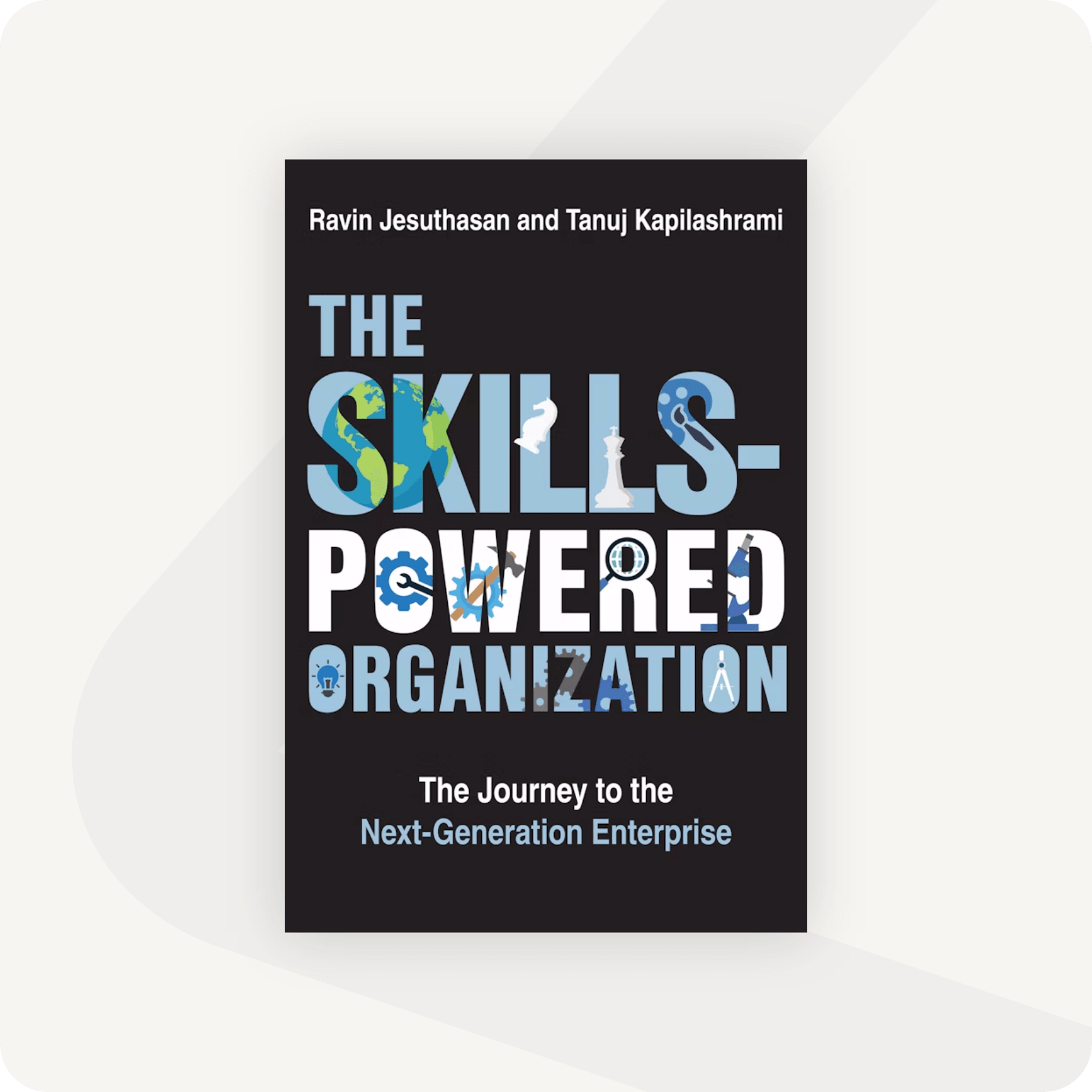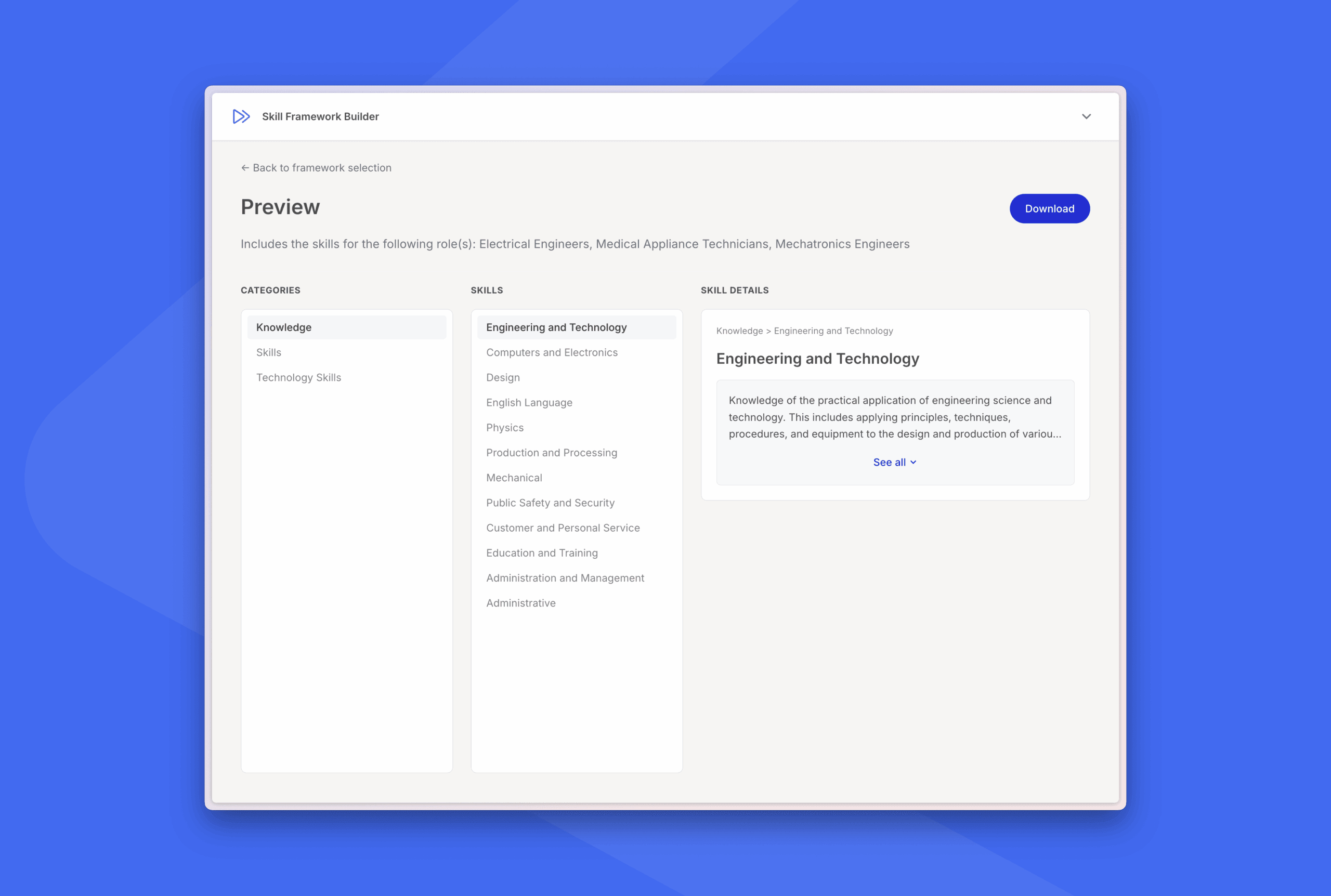
In today’s fast-changing job market, organizations must rethink how they harness and develop talent. Developing Skills-Powered Organizations (SPOs) are changing how businesses operate by aligning employee skills with changing organizational needs. Ravin Jesuthasan and Tanuj Kapilashrami’s recent book, The Skills-Powered Organization: The Journey to the Next Generation Enterprise, highlights this concept, which signifies a shift in how companies view talent management and organizational structure.
Shaking Up Traditional Ways
Traditionally, companies depended on strict hierarchies and set roles; the shift toward Skills-Powered Organizations (SPOs) is about breaking away from outdated frameworks that limit employees’ ability to explore their potential. Rather than just being “skills-based,” which can feel static and passive, “skills-powered” speaks to the active, dynamic use of employee capabilities to drive real change. It’s a more forward-thinking and powerful concept.
The term “powered,” as highlighted in Ravin Jesuthasan’s The Skills-Powered Organization, captures the energy and impact behind aligning skills with business needs—it suggests motion, transformation, and progress. Unlike the static feel of “based,” “powered” signifies a shift toward harnessing skills as a driving force for innovation and growth. This is why it’s gaining traction: it’s more than just a framework; it’s a fundamental driver of organizational change.
This shift fosters a culture of continuous development, allowing employees to actively shape their career paths rather than waiting for defined promotional steps. Organizations benefit by nurturing a more engaged and motivated workforce, ultimately improving outcomes.
The Technology Factor
Technology is significant to how skills-powered organizations come together and thrive. With advanced digital platforms and AI-driven tools at the core, businesses are discovering fresh ways to tap into employee skills. One standout example is internal talent marketplaces (ITMs). These platforms are game changers, allowing companies to flexibly match employees’ unique skills to their needs, creating opportunities for everyone involved. It’s all about using smart tech to get people in the right spots faster.
Take the example of Standard Chartered Bank, which has successfully implemented ITMs to upskill its workforce. The bank has seen impressive cost savings, reducing reliance on external hires by moving talent across departments internally. This approach allows for efficient talent utilization while cutting costs—a crucial factor as businesses tighten their budgets amid economic pressures. Companies like Standard Chartered are proving that investing in ITMs and upskilling initiatives results in substantial long-term savings while creating a more adaptable and engaged workforce.
These ITMs help break down the traditional silos that exist in many companies. Employees can engage with projects and roles outside their immediate departments, maximizing their abilities and interests. This technology creates more opportunities for employees to grow, develop, and add value that aligns with personal goals and company objectives.
The rise of skills-powered thinking and technological advancements is helping businesses become more agile and adaptable. In today’s competitive landscape, success often relies on a company’s ability to pivot quickly in response to new challenges. By embracing this approach, organizations can turn obstacles into opportunities. With the right tools and strategies in place, skills-powered organizations can tap into the full potential of their workforce, allowing them to stay ahead of the curve and confidently navigate market complexities. This proactive mindset ensures companies are ready to embrace change and maintain their competitive edge.
Cultivating a Culture of Learning
Creating a culture that supports continuous learning and personal growth makes a difference for skills-powered organizations. It’s all about encouraging employees to develop skills and pursue personal goals. When companies invest in their people, everyone wins—individual careers grow, and the organization strengthens. Building this kind of culture can be tricky, but it’s worth it for long-term success, helping everyone reach their full potential and driving fresh ideas and progress.
In a traditional organization, learning might occur sporadically—through occasional training sessions or professional development opportunities. In contrast, a skills-powered organization fosters a more dynamic, ongoing process of upskilling and reskilling. Employees are encouraged to take ownership of their learning journeys, and companies provide the tools and opportunities needed to support this growth.
Offering access to diverse resources such as mentoring, job shadowing, collaborative projects, and formal training programs helps build a more adaptable and resilient workforce. Employees who know their company is committed to their development are more likely to invest in their growth. This continuous learning environment benefits individuals and the organization as employees gain the skills to adapt to new roles, challenges, and market demands.
The power of skills-powered organizations lies in recognizing employee talent and actively nurturing and expanding it. The more employees develop their skills, the more empowered they become to contribute to different aspects of the business, reinforcing that skills are a powerful resource.
The Upside of Adopting a Skills-Powered Organization
Embracing the concept of a skills-powered organization unlocks a world of possibilities. By valuing and leveraging the diverse talents within their teams, companies can cultivate an environment rich in inclusivity and innovation. This focus on skills as a foundational element enhances adaptability and positions organizations to thrive in the ever-evolving global landscape, where agility and creativity are paramount.
A notable advantage of this approach is the boost in internal mobility from prioritizing skills over rigid job descriptions. Employees can explore different roles, shift between departments, or engage in new projects aligned with their talents. This newfound flexibility reduces reliance on external hiring, resulting in cost savings and increasing employee retention. As team members are encouraged to grow and pursue diverse opportunities, their job satisfaction and engagement flourish, fostering a vibrant workplace culture.
In a skills-powered organization, individuals feel recognized for their current contributions and potential to drive future success. This acknowledgment nurtures a more profound sense of belonging and loyalty among employees. Moreover, as team members collaborate more dynamically, the organization benefits from enhanced creativity and innovative problem-solving. This collaborative spirit leads to better outcomes as diverse perspectives come together to tackle challenges.
Furthermore, skills-powered organizations are inherently more resilient and ready to tackle future uncertainties. With a workforce that can swiftly adapt to change, these businesses can effectively navigate industry fluctuations, economic upheavals, and new opportunities. This also ensures that organizations remain relevant and thrive in constant evolution.
The Path Forward
Adopting a skills-powered approach is not just a strategic choice but a forward-thinking commitment to unlocking the full potential of human talent. Organizations can thrive in an era where agility and innovation are paramount by transitioning from a more static skills-based framework to a dynamic skills-powered model.
The term “skills-powered” reflects a deeper understanding of how crucial employee capabilities are to business success. It’s no longer sufficient to identify and categorize skills within a workforce simply; organizations must actively harness and leverage these skills to fuel their operations, creating an environment where talent can be fully utilized.
At Zipteam, we are at the forefront of this movement, leveraging AI-driven solutions to match employee skills with organizational needs. Our tools help businesses quickly identify talent, optimize workforce potential, and remain responsive in an ever-evolving market. As skills move from just a base to the powerhouse behind business success, Zipteam is dedicated to helping organizations leverage this potential to shape the next generation of skills-powered enterprises.












